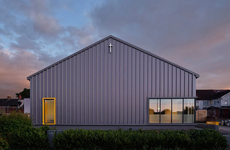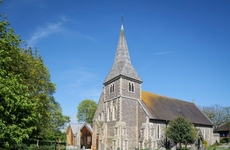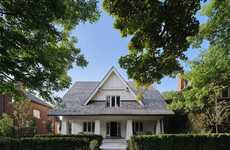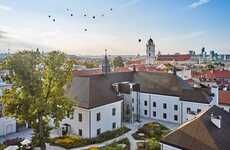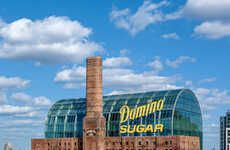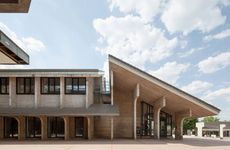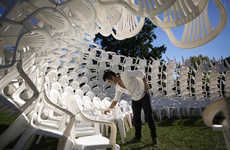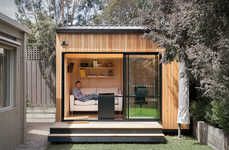
'Sunday School Lofts' Will Use an Early 20th Century Church Facade
Joey Haar — September 13, 2016 — Art & Design
References: sundayschoollofts & urbantoronto
'Sunday School Lofts' is a condo being built in Toronto's historic Greektown that incorporates the architecture of the exist building on the site: the Temple Baptist Church, built in 1925.
When compared to the condos being built across metropolises today, early 19th century religious architecture is vastly different. While most condos take advantage of vertical space, buildings like the Temple Baptist Church are comparatively short, with grandly arched windows and high, vaulted ceilings. The Sunday School Lofts development keeps many of these classic design elements in place throughout the facade and front lobby of the building.
Since the building is considered a historically important site, the Sunday School Lofts project is being overseen by ERA Architects, a Toronto firm that maintains heritage buildings across the city.
When compared to the condos being built across metropolises today, early 19th century religious architecture is vastly different. While most condos take advantage of vertical space, buildings like the Temple Baptist Church are comparatively short, with grandly arched windows and high, vaulted ceilings. The Sunday School Lofts development keeps many of these classic design elements in place throughout the facade and front lobby of the building.
Since the building is considered a historically important site, the Sunday School Lofts project is being overseen by ERA Architects, a Toronto firm that maintains heritage buildings across the city.
Trend Themes
1. Heritage Architecture Utilization - Repurposing historic buildings for modern development creates unique living/working spaces and preserves cultural identity.
2. Authenticity-driven Design - Designing around the unique historical elements of a building can create more authentic and desirable spaces for inhabitants.
3. Mixed-use Historical Development - Creating mixed-use spaces within historic buildings can enrich local communities and provide economic opportunities for businesses.
Industry Implications
1. Real Estate and Property Development - The repurposing of historic buildings for modern living/working spaces is a largely untapped market, presenting disruptive innovation opportunities in real estate and property development.
2. Architecture and Design - Designing modern spaces around the unique historical elements of a building requires architects and designers to think outside the box, providing disruptive innovation opportunities within the industry.
3. Tourism and Heritage Preservation - Historical repurposing projects can serve as unique tourism destinations and contribute to the preservation of cultural heritage, disrupting the traditional tourism industry and its offerings.
2.2
Score
Popularity
Activity
Freshness


